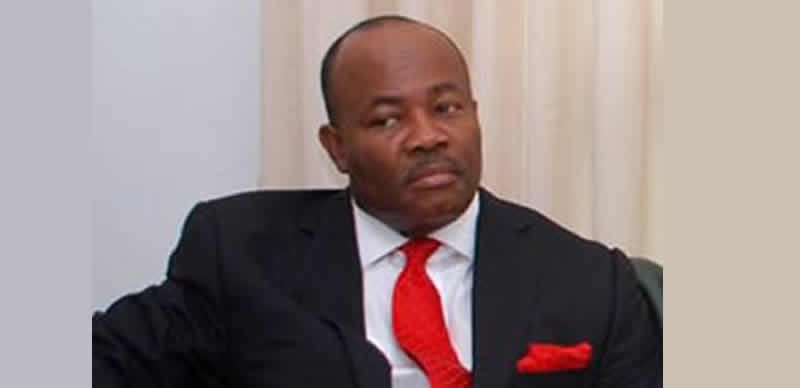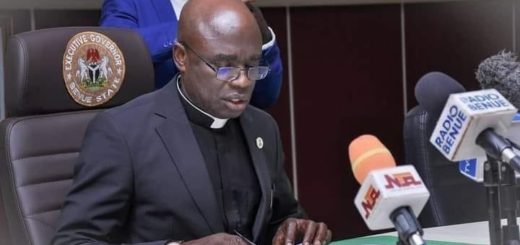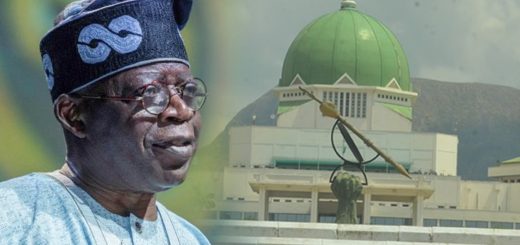Senators’ Monthly Pay Hits ₦2,000,000,000
 Indications have emerged that the total monthly pay of 99 non-principal officers of the Nigerian senate is above N2 billion.
Indications have emerged that the total monthly pay of 99 non-principal officers of the Nigerian senate is above N2 billion.
One of them, Senator Abdulrahman Kawu Sumaila (NNPP, Kano), on Wednesday, confirmed that he receives about N21 million monthly as his perquisite for representing the people of Kano South Senatorial District in the 10th National Assembly.
He however said that he does not know how much goes to the Senate president, the deputy Senate president, as well as each of the eight other principal officers of the upper chamber of the Nigerian parliament.
The revelation by Kawu puts the total monthly package for all the 99 non-principal officers of the Senate at N2.079 billion.
The earnings of the presiding officers of the National Assembly have been still not been known, with several other lawmakers in the past saying they do not know what those officers receive monthly, and that even the number of aides statutorily allowed for those category of officers were unknown to them.
Efforts by Daily Trust to get the breakdown of their monthly earnings yesterday were not successful as the Senate’s spokesperson, Yemi Adaramodu, neither answered calls nor replied to messages inquiring about the earnings of the principal officers, where were sent to his mobile telephone line.
There have been controversies in recent times over the actual salaries and allowances of federal lawmakers in the country.
Some former members of parliament like Senator Shehu Sani and representatives Muhammad Sani Zoro and Sergius Ogun had recently quoted different figures as emoluments of lawmakers, and also challenged those who are serving in the 10th National Assembly to make public what they earn.
Ogun, who represented Esan North-East/Esan South-East Constituency from 2015 to 2023, had disclosed last week that each member of the House of Representatives received N8.5 million monthly as running costs while he was in the parliament.
Sani Zorro, who had represented Gumel/Maigatari/Sule Tankarkar/Gagarawa Federal Constituency of Jigawa State in the House of Representatives from 2015 to 2019, however, challenged those currently serving to make public their entitlements.
Senator Sani, who was in the Senate from 2015 to 2019, had said each senator received a monthly running cost of N13.5 million in addition to the monthly N750, 000.00 prescribed by the Revenue Mobilisation Allocation and Fiscal Commission (RMAFC).
Also, former President Olusegun Obasanjo recently criticised the federal lawmakers for allegedly fixing their salaries, describing the practice as “immoral.”
In response to Obasanjo’s accusation, however, the Senate spokesman, Yemi Adaramodu insisted that members of the National Assembly only receive what was allocated to them by the Revenue Mobilisation, Allocation and Fiscal Commission (RMAFC).
But reacting to Senator Sani’s claim, the Chairman of RMAFC, M. B. Shehu, had, in a statement on Tuesday, said each senator earns N1,063,860 in salary and allowances per month.
The RMAFC boss, however, stressed that the commission does not have the constitutional powers to enforce compliance with the proper implementation of the remuneration package of lawmakers. “This lacuna is, however, being addressed by the National Assembly,” he had stated.
I earn N21m monthly running cost – Senator Kawu Sumaila
But in what seemed to be a contradiction of the RMAFC’s position, Senator Kawu Sumaila, in an interview on BBC Hausa on Wednesday, said that he receives about N21 million monthly.
Kawu, a former legislative aide to former President Muhammadu Buhari, said: “The amount that salary that each senator receives per month is less than N1 million. If there are cuts, it comes back to about N600,000.
“In the Senate, each senator is given N21 million every month as the cost of running his office”, he said.
He said the N21 million each senator receives is for all the activities, including domestic trips, purchase of daily newspapers, among other functions.
Former President Obasanjo had, on Friday in Abeokuta, Ogun State, while hosting six members of the House of Representatives, led by Ikenga Ugochinyere, who visited him, accused federal lawmakers of fixing their salaries and allowances; a claim both chambers had separately dispelled.
“In your case, with all due respect, you’re not supposed to fix your salaries. But you decide what you pay yourself—the allowances that you give yourselves, including newspaper allowances.
“You give yourselves all sorts of things, and you know it is not right. It is immoral, yet you are doing it, the Senate is doing it, and you are beating your chests about it. In some cases, the executive gives you what you’re not entitled to. You all got N200 million (each),” Obasanjo had alleged.
Adjust your earnings with masses’ realities—SERAP, YIAGA, CHRICED
Reacting to the revelation by Senator Sumaila, some civil society organisations (CSOs) and analysts yesterday raised concerns over the “huge” pays being received by the legislators amidst the hardship in the land.
Executive Director, Socio-Economic Rights and Accountability Project (SERAP), Adetokunbo Mumuni, in a chat with Daily Trust, noted that Nigeria operates one of the world’s most expensive democracies without corresponding results.
“We cannot compare ourselves with any other nations in terms of the expenses incurred, whether annually or monthly. Legislators, especially senators, must reassess their earnings in line with the realities of the Nigerian nation,” Mumuni said.
He decried the huge disparity between the earnings of lawmakers and the average Nigerian, saying the N70,000 new minimum wage for Nigerian workers is a stark contrast to the N21 million received by senators.
“This situation needs urgent attention to prevent leaving future generations of Nigerians in a dire financial mess,” he added. Mark Amaza, Senior Communications Officer at Yiaga Africa, said even after 25 years of democratic governance, Nigerians still lack clarity on the earnings of their federal legislators.
He blamed the National Assembly for perpetuating “this opacity”, saying “Transparency and accountability are essential in a democracy, and the earnings of legislators should not be a closely guarded secret.”
Ibrahim Zikirullahi, Executive Director, the Resource Centre for Human Rights and Civic Education (CHRICED), said the revelation by Senator Sumaila reinforced the need to reduce the cost of governance.
He said it was “unfortunate” that those entrusted with managing the nation’s resources appear indifferent to the needs of the people they represent.
“At a time when the majority of Nigerians are suffering from multi-dimensional poverty and severe hunger, it is disheartening to learn that such vast amounts are being spent on just 109 lawmakers while millions lack basic amenities like roads, electricity, and water,” Zikirullahi said.
He said the funds allocated to legislators could be better spent on public services such as schools and healthcare centres.
“Something drastic must be done to address social inequality in this country, starting with a significant reduction in the funds allocated to the lavish lifestyles of our political officeholders. The frequent calls by the government for citizens to make sacrifices amid Nigeria’s economic challenges will ring hollow if those in power continue to enrich themselves at public expense,” he said.













